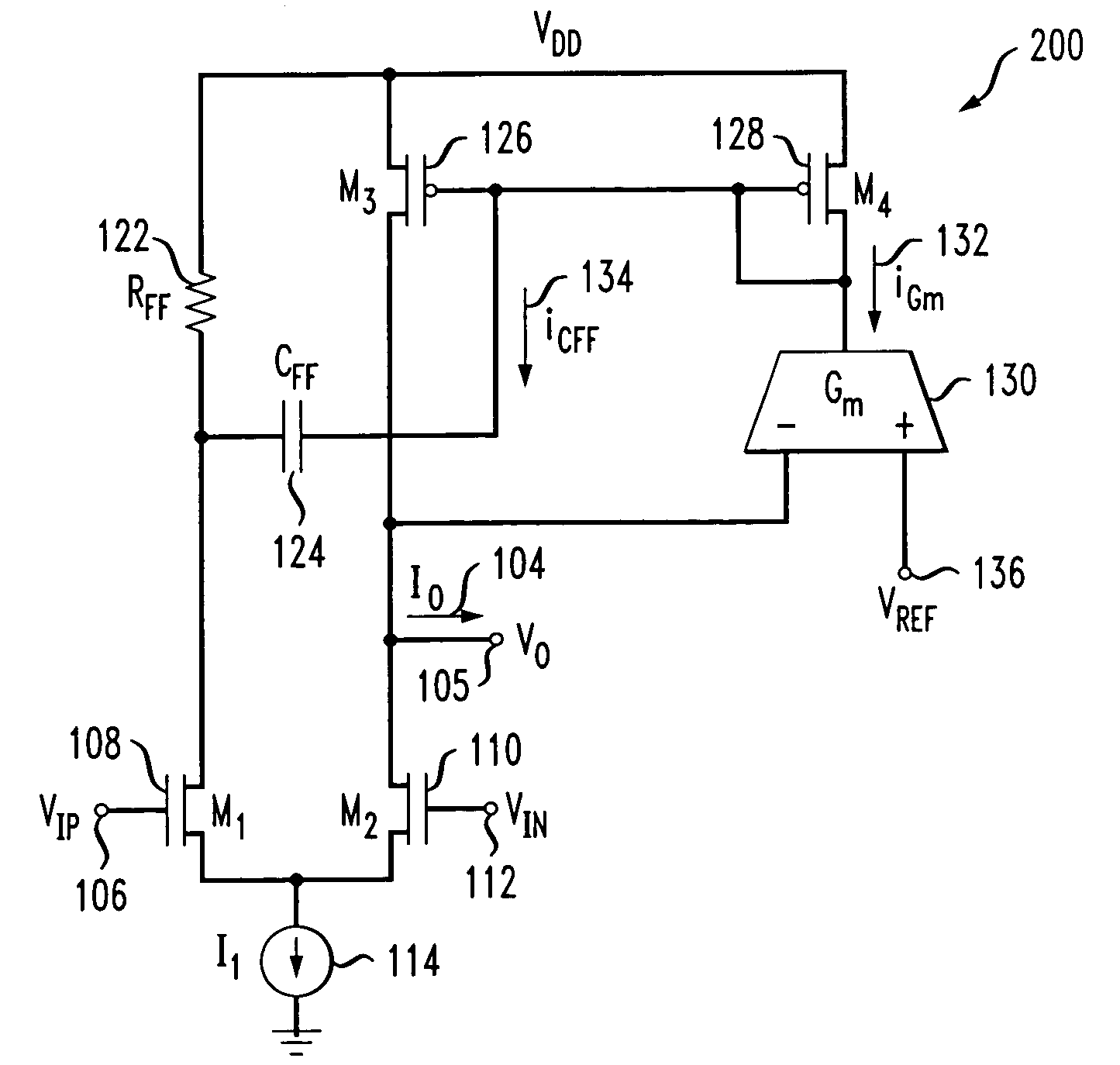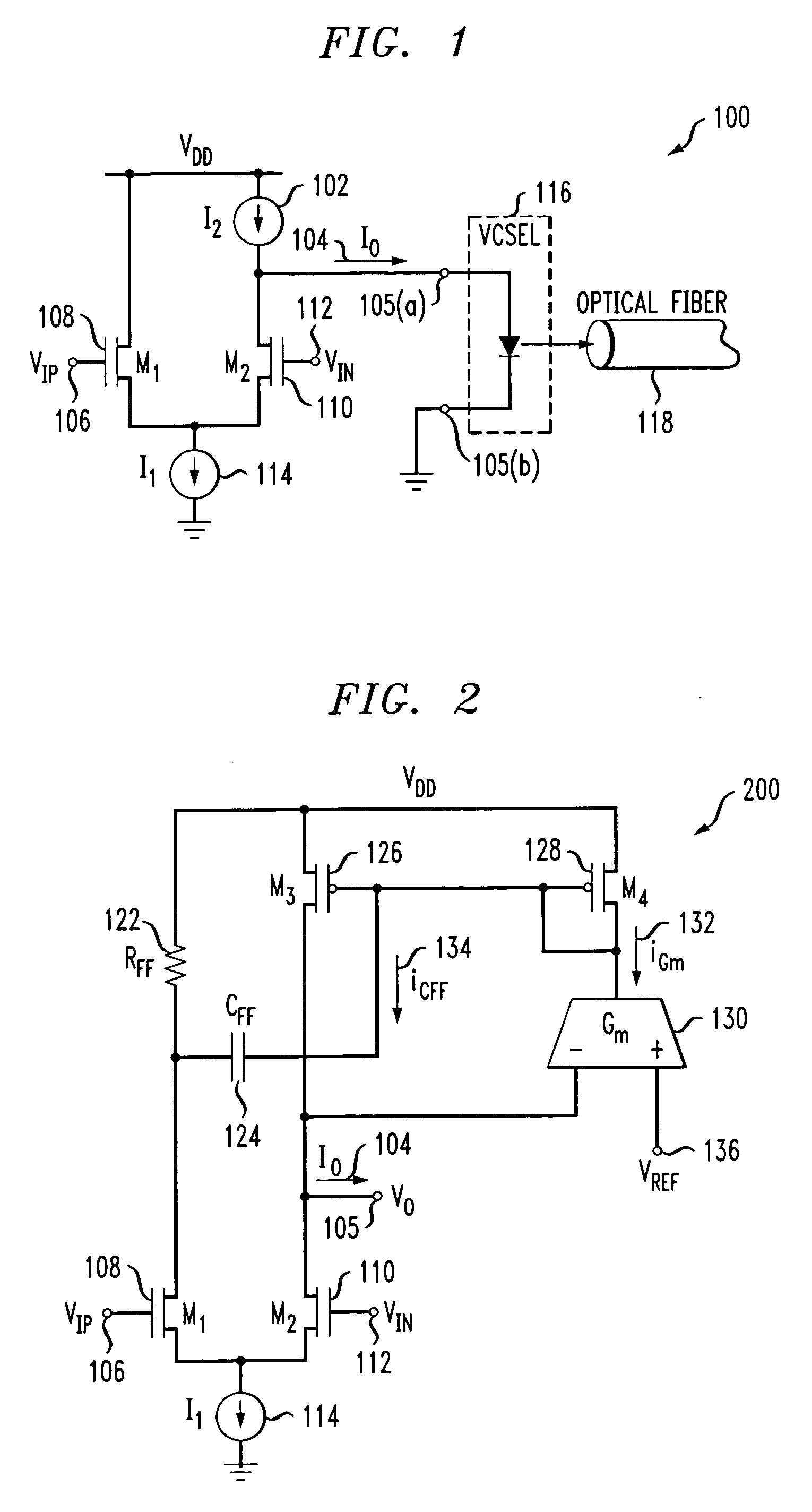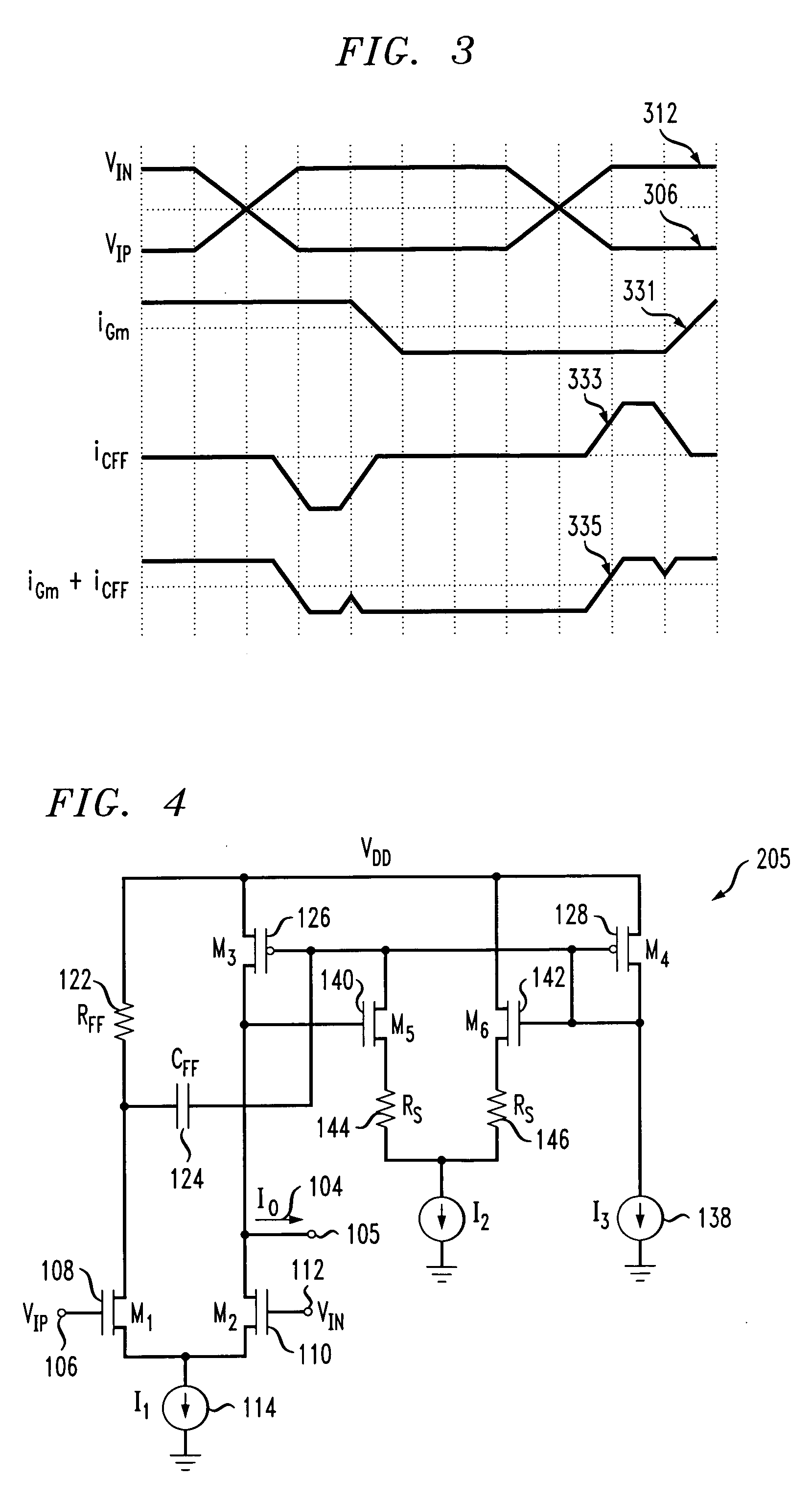Method and apparatus for providing a modulation current
a modulation current and modulation method technology, applied in pulse generators, semiconductor lasers, pulse techniques, etc., can solve the problems of increasing error rates, speed limitations in regulation, and difficulty in achieving high output impedances, and achieve the effect of improving modulation
- Summary
- Abstract
- Description
- Claims
- Application Information
AI Technical Summary
Benefits of technology
Problems solved by technology
Method used
Image
Examples
Embodiment Construction
[0027] When designing MOSFET (metal oxide semiconductor field effect transistor) devices, it is advantageous to design them with minimum channel lengths, since this minimizes parasitic capacitance for a given bias current. However, short channel MOSFET devices are more susceptible to channel length modulation, a short-channel effect that can significantly reduce drain-to-source impedance of a MOSFET device in the saturation state, causing a single short-channel MOSFET to be a less-than ideal current source. This characteristic also affects most of the advanced BiCMOS (bipolar complementary metal oxide semiconductor) technologies including SiGe (silicon germanium). These characteristics are mitigated, in accordance with principles of the invention, by generating a modulation current via techniques that include output impedance compensation with feed-forward bandwidth enhancement.
[0028]FIG. 1 shows a schematic diagram of a transconductance amplifier (TCA)-type laser diode driver (LDD...
PUM
 Login to View More
Login to View More Abstract
Description
Claims
Application Information
 Login to View More
Login to View More - R&D
- Intellectual Property
- Life Sciences
- Materials
- Tech Scout
- Unparalleled Data Quality
- Higher Quality Content
- 60% Fewer Hallucinations
Browse by: Latest US Patents, China's latest patents, Technical Efficacy Thesaurus, Application Domain, Technology Topic, Popular Technical Reports.
© 2025 PatSnap. All rights reserved.Legal|Privacy policy|Modern Slavery Act Transparency Statement|Sitemap|About US| Contact US: help@patsnap.com



